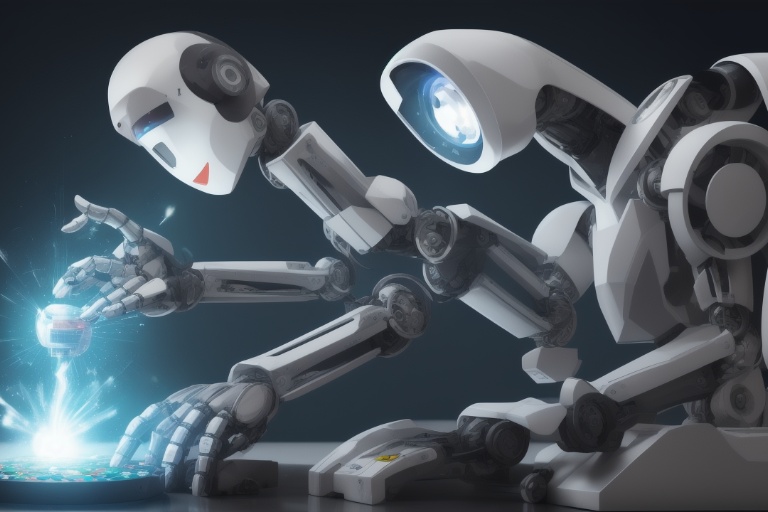The realm of artificial intelligence and machine learning is undergoing a transformative phase, thanks largely to the contribution of open source software. Such projects have empowered developers to freely access, modify, and distribute source code, creating a landscape where collaboration propels innovation forward. Today, we're going to take a deep dive into some of the most groundbreaking open source AI projects and tools that are at the forefront in 2023.
The realm of artificial intelligence and machine learning is undergoing a transformative phase, thanks largely to the contribution of open source software. Such projects have empowered developers to freely access, modify, and distribute source code, creating a landscape where collaboration propels innovation forward. Today, we're going to take a deep dive into some of the most groundbreaking open source AI projects and tools that are at the forefront in 2023.
Deep Learning Frameworks
One of the foundational pillars of modern AI is deep learning, and frameworks in this space allow for the design, training, and deployment of complex models. TensorFlow, developed by Google Brain, is a stalwart in this category. With its comprehensive, flexible ecosystem of tools, libraries, and community resources, TensorFlow facilitates the creation of sophisticated neural network-based applications.
Another key player is PyTorch, known for its dynamic computational graph and user-friendly interface. Developed by Facebook's AI Research lab, PyTorch has gained a reputation for being immensely developer-friendly, allowing for quick prototyping with its intuitive syntax and powerful GPU acceleration.
Keras, which now integrates with TensorFlow as its high-level API, is notable for enabling fast and easy experimentation with deep neural networks. With its modular and composable nature, Keras abstracts away much of the complexity involved in creating deep learning models, making it accessible to those new to the field.
Natural Language Processing and Language Models
Moving into natural language processing (NLP), projects like the Transformers library by Hugging Face have drastically simplified the process of leveraging state-of-the-art language models. With support for thousands of pre-trained models and implementations for a multitude of languages, the Transformers library is an indispensable tool for developers working in NLP.
BERT (Bidirectional Encoder Representations from Transformers) is another revolutionary project, altering the way machines comprehend human language. Constructed on a transformer architecture, BERT captures the context of a word based on its surroundings in a sentence, setting new precedents in the understanding of search queries and language representation.
Computer Vision and Image Processing
In computer vision, open source tools have been pivotal in making vast strides in image recognition and processing. OpenCV stands as a critical library for real-time computer vision applications, offering over 2,500 optimized algorithms. It's a foundational tool for developers working on tasks ranging from facial recognition to automated inspection.
Another innovative project, YOLO (You Only Look Once), has changed the game in object detection. YOLO is famed for its speed and accuracy, capable of detecting objects in near real-time while performing exceptionally well on a variety of detection tasks.
Machine Learning Libraries and Tools
Machine learning libraries like scikit-learn have democratized access to sophisticated statistical modeling and algorithmic tools. As a result, developers can engage with simple and efficient tools for data mining and data analysis, integrated seamlessly with Python's scientific stack.
XGBoost, specializing in gradient boosting techniques, has also garnered attention for its performance and scalability. XGBoost is the go-to tool for developers in need of a library that performs equally well on classification, regression, and ranking problems, making it a versatile asset in any machine learning toolkit.
AI Assistants and Chatbots
Artificial intelligence is not just about numerical data; it's also about interaction. Open source projects like Rasa have been instrumental in crafting conversational AI, providing the tools to build chatbots and voice assistants that are robust, contextually aware, and capable of continuous learning.
Another significant entry in this space is the OpenAI Gym, which provides a standardized set of environments for training and comparing reinforcement learning algorithms. It encourages developers to experiment with and evolve the capabilities of AI agents, pushing the boundaries of what's possible in AI-human interactions.
In summary, the array of open source AI projects and tools available in 2023 is nothing short of astounding. These projects don't just enable innovation and creativity; they represent the vanguard of a rapidly evolving technological landscape. Deep learning frameworks are making complex neural networks accessible to many. NLP advancements are teaching machines to understand us better. Computer vision technology is reshaping how machines perceive our world. Machine learning libraries are making powerful algorithms readily available, and AI assistants are defining new ways we interact with technology. By embracing these tools, developers can stay at the cutting edge of AI development, contributing to the rich tapestry of the AI revolution.
Information for this article was gathered from the following source.




